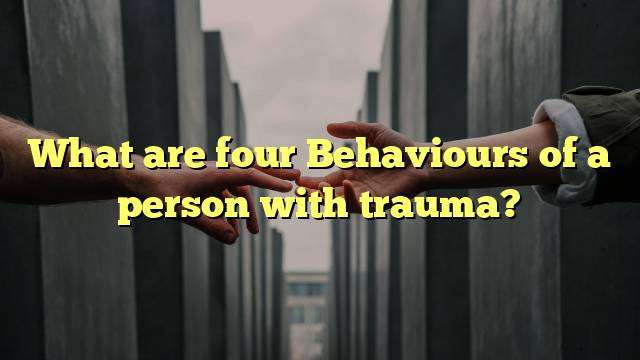What Are the Four Behaviours of a Person with Trauma?
Trauma is a condition that can result from a wide range of traumatic experiences, including physical, emotional, or psychological abuse, neglect, assault, war, natural disasters, or accidents. It can also be caused by witnessing traumatic events or living in an environment of ongoing danger or fear. People who experience trauma may display a variety of behaviors, including avoidance, anxiety, difficulty concentrating, intrusive thoughts, and physical reactions. While many of these behaviors are normal responses to trauma, some may indicate that the person is struggling to cope and could benefit from professional help. In this article, we will explore the four most common behaviours of a person with trauma.
1. Avoidance Behaviour
One of the most common behaviours of a person with trauma is avoidance behaviour. This type of behaviour can manifest in various ways, including avoiding certain places, people, or activities that could be associated with the traumatic experience. A person may also attempt to repress or deny traumatic memories, or refuse to talk about them. This type of behaviour is often a sign that the person is struggling to cope with the trauma and could benefit from professional help.
2. Anxiety and Panic
People who have experienced trauma may also experience feelings of anxiety, fear, or panic. They may also experience intrusive thoughts about the traumatic event, flashbacks, or nightmares. Anxiety can manifest in physical symptoms, such as nausea, sweating, trembling, and an increased heart rate. If these symptoms become overwhelming or interfere with daily life, it is important to seek professional help.
3. Difficulty Concentrating
Trauma can affect a person’s ability to focus, concentrate, and remember things. This can be a result of the intense emotions associated with the trauma, as well as the physical and psychological symptoms of trauma. People may find it difficult to pay attention, make decisions, or remember details. If these difficulties become persistent or interfere with daily life, it is important to seek professional help.
4. Physical Reactions
People who have experienced trauma may also experience physical reactions, such as headaches, chest pain, palpitations, stomachaches, or other physical symptoms. Physical reactions can be a sign that the person is struggling to cope with the trauma and could benefit from professional help.
Conclusion
Trauma is a complex condition that can have a profound impact on a person’s life. It can manifest in a variety of behaviours, including avoidance, anxiety, difficulty concentrating, and physical reactions. If these behaviours become persistent or interfere with daily life, it is important to seek professional help. With the right treatment, it is possible to manage the symptoms of trauma and live a fulfilling life.



